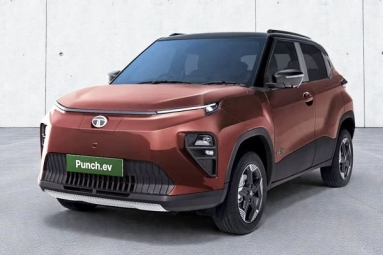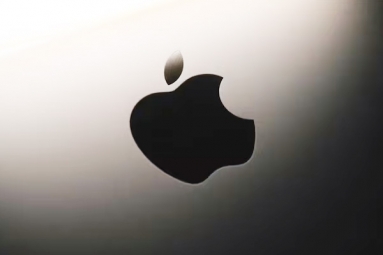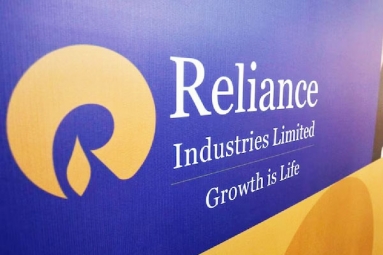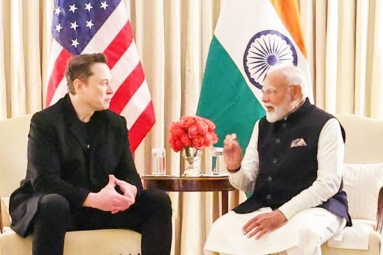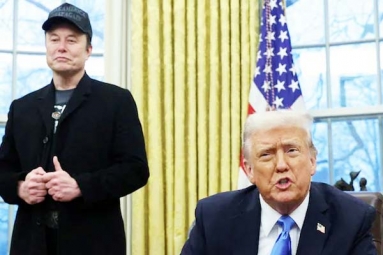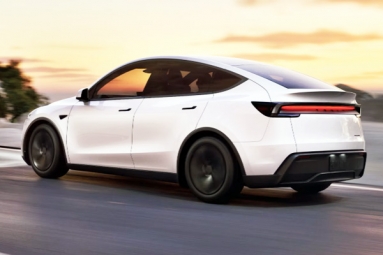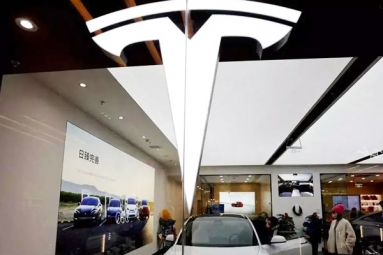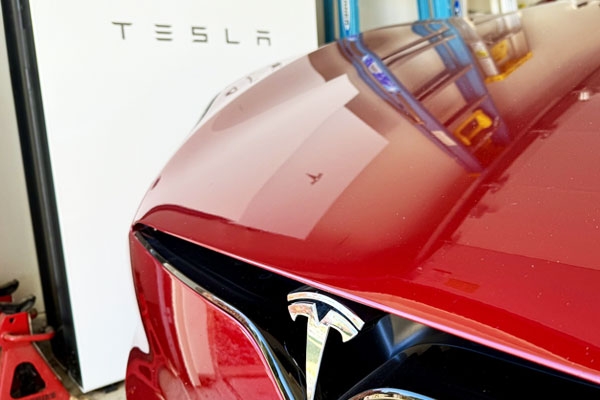
(Image source from: x.com/TechOperator)
Tesla, a leading name in the electric vehicle sector, is not planning to set up manufacturing operations in India, according to Union Heavy Industries Minister H D Kumaraswamy, who spoke on Monday. Instead, the company intends to establish two retail locations. Kumaraswamy noted that various prominent global electric vehicle manufacturers, including Mercedes-Benz, Volkswagen-Škoda, Hyundai, and Kia, have expressed interest in participating in the ministry's major initiative aimed at promoting the manufacturing of electric passenger vehicles in India, which was announced in March of the previous year. He remarked, “Companies like Mercedes-Benz, Volkswagen-Škoda, Hyundai, and Kia have already shown their interest. However, we do not hold expectations for Tesla. They will be launching two showrooms but are not looking to manufacture in India.”
In February, U.S. President Donald Trump criticized Tesla's intentions to grow in India, deeming it "unfair" to the United States. He remarked, “It’s acceptable if (Tesla CEO Elon Musk) builds a factory in India, but it isn’t fair to us. It's quite unjust.” Trump has raised similar concerns regarding Apple's plans for expansion in India. Also on Monday, the heavy industries ministry released comprehensive guidelines under the electric vehicle manufacturing scheme and announced that they would soon open a portal for online applications. Applicants accepted into the program must invest at least Rs 4,150 crore to manufacture electric vehicles domestically and meet specified domestic value addition (DVA) targets. This will allow them to import up to 8,000 completely built units (CBU) of electric cars each year, provided these vehicles have a minimum import value of $35,000, with a reduced customs duty of 15 percent for a period of five years. The scheme is designed for global companies earning a minimum of Rs 10,000 crore annually and possessing fixed assets worth at least Rs 3,000 crore.
“The ultimate goal of this scheme is to establish India as a worldwide hub for electric vehicle production. By enforcing domestic value addition requirements, we aim to enhance the ‘Make in India’ and ‘Aatmanirbhar Bharat’ campaigns, while encouraging both international and Indian firms to actively engage in the green mobility transformation of India,” Kumaraswamy stated. Initially, many believed the initiative was developed to attract Tesla for local manufacturing after the company raised issues about high import duties, which can reach as high as 110 percent. Following the announcement of the scheme in March 2024, as the Lok Sabha elections approached, it was anticipated that Musk would visit India to commit over $2 billion into an automotive manufacturing unit in the region. However, the visit was delayed when Musk cited "very heavy Tesla obligations." Shortly after canceling his trip to India, Musk traveled to China, which is Tesla's second-largest market.
In February of this year, shortly after Prime Minister Narendra Modi's meeting with Musk in Washington, Tesla declared 13 job positions in India, including roles such as store manager, service advisor, business operations analyst, and customer engagement manager. As Tesla considers its objectives in India, it is encountering growing competition from Chinese electric vehicle manufacturers, especially BYD, amid a slowdown in the global sales growth of EVs.
On another note, the think tank Global Trade Research Initiative (GTRI) has indicated that it may take several years before the first set of electric vehicles produced under the government's initiative reaches the market. GTRI commented, "While the announcement of the scheme’s guidelines is a positive development, the application process has yet to commence and should begin shortly. Realistically, it is likely to take an additional six months or more before the firms chosen are revealed, and the initial locally produced EVs from this scheme will take a considerable amount of time to arrive; for the moment, approved companies are permitted to continue importing fully assembled vehicles at the reduced tariff of 15%."



